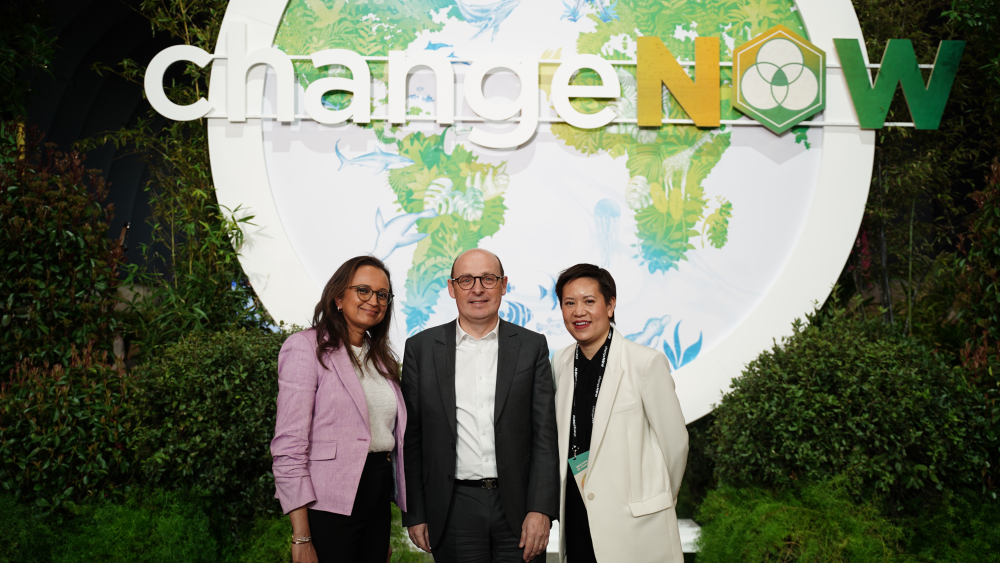Paris, 12 November 2023
A few months ago, a post by Guillaume de Lustrac (carbon footprint consultant) on LinkedIn sparked a lively debate. He revealed his fiancée’s refusal to accept a job offer due to the requirement for air travel, contradicting the environmental claims of the concerned company.
This anecdote highlights an increasingly prevalent issue: the young generation entering the professional world is holding companies accountable for their ecological responsibilities.
In a world where climate crises make headlines, companies can no longer rely solely on superficial declarations of their commitment to the environment.
Armed with information and convictions, young talents question, scrutinize, and sometimes reject job offers that do not align with their eco-conscious values.
The refusal to collaborate with companies involved in armament or tobacco, for example, is a reality.
Candidates no longer hesitate to decline interview offers, putting companies in a dilemma: embody their claimed values genuinely or risk losing a generation of qualified and passionate workers.
HR departments thus find themselves at the heart of a fundamental transformation.
The values of a company, once just lines in an annual report or slogans on a website, are now decisive criteria in attracting and retaining talents.
Young professionals seek congruence between their personal convictions and the practices of their potential employers.
It is no longer just about salary or career progression; it is a matter of identity and ethics.
The challenge for HR is to navigate this unprecedented reality.
Recruitment practices must evolve to assess not only candidates’ technical skills but also their alignment with the company’s culture, especially in terms of sustainability.
But it goes both ways.
Companies must be prepared to be scrutinized and questioned about their ecological sincerity and social impact.
Sustainability audits, environmental certifications, and impact reports are becoming increasingly common tools to validate companies’ claims.
This transparency is a step in the right direction, but it comes with its challenges.
For example, greenwashing, or the art of giving a deceptive ecological image, is a practice that is increasingly criticized and risky.
Companies that engage in it are quickly exposed by a connected and activist generation, vigilant for inconsistencies and ready to share their findings on social media.
The dialogue between HR managers and young talents must therefore become more nuanced and profound.
Beyond environmental policies, the entire corporate strategy must be reconsidered to meet the challenges of the 21st century.
Companies that succeed in aligning their practices with sustainability values will be those that attract and retain the best talents.
The ecological urgency is transforming the job market and requires HR to constantly react and adapt.
The stakes are high: it is about building organizations where human capital and environmental values progress together.
HR must then assume a role as a mediator and innovator, promoting green initiatives and ethical practices while ensuring the attractiveness and viability of the company.
Initiatives may vary from one company to another, but the essence remains the same: integrating sustainability at the core of the corporate strategy.
Telecommuting policies, reducing business travel, supporting local ecological projects, and implementing sustainable office practices are measures that lead to this commitment.
In addition, training programs continue on ecological issues, and partnerships with organizations dedicated to sustainability can strengthen the credibility and commitment of companies.
However, beyond these measures, HR must also work on corporate culture.
This involves cultivating an environment where employees feel valued not only for their work but also for their ability to contribute to a goal larger than the sum of financial results.
Companies that encourage innovation in sustainability at all hierarchical levels position themselves as leaders in the quest for a sustainable future.
The upcoming generation is looking for mentors and leaders who not only talk about change but also act concretely.
Company leaders and HR professionals must therefore embody these values and demonstrate by example that change is possible.
Ultimately, the challenge for HR is to reconcile economic imperatives with ecological imperatives while respecting the aspirations of new entrants in the job market.
It is a complex equation, but companies that solve it will thrive in the economy of tomorrow, an economy where ecology is no longer an option but a strategic necessity.
Credits: Meet & Match
M&M careers opportunities : Talents



